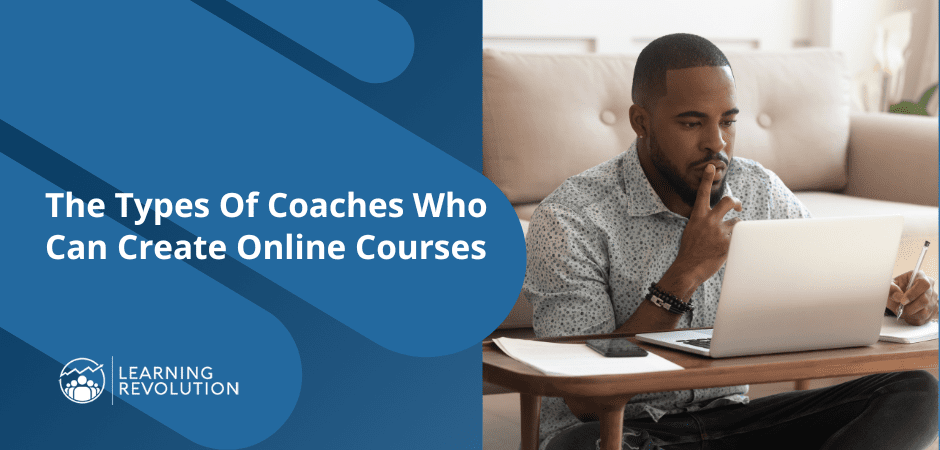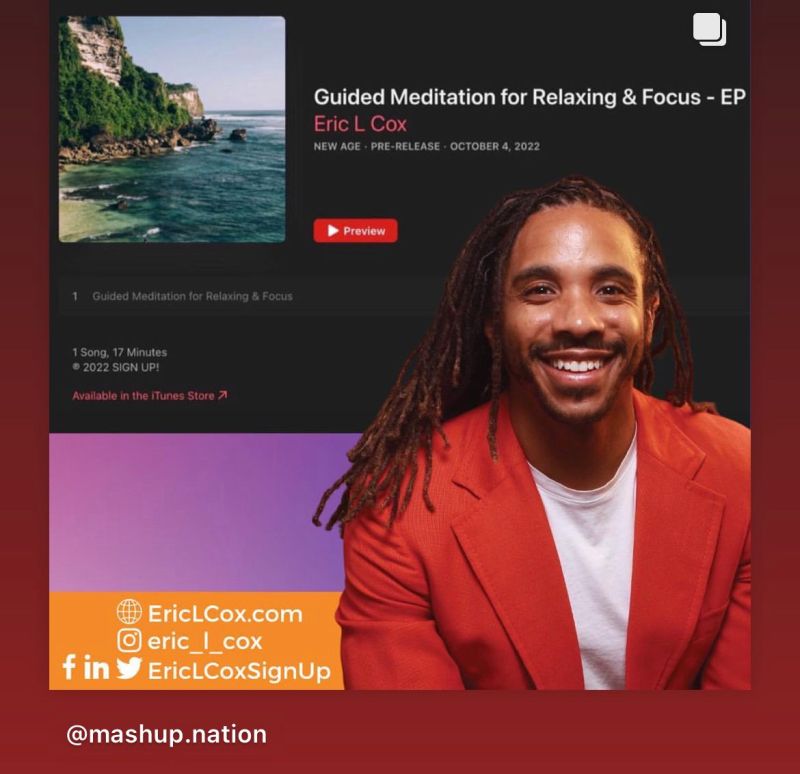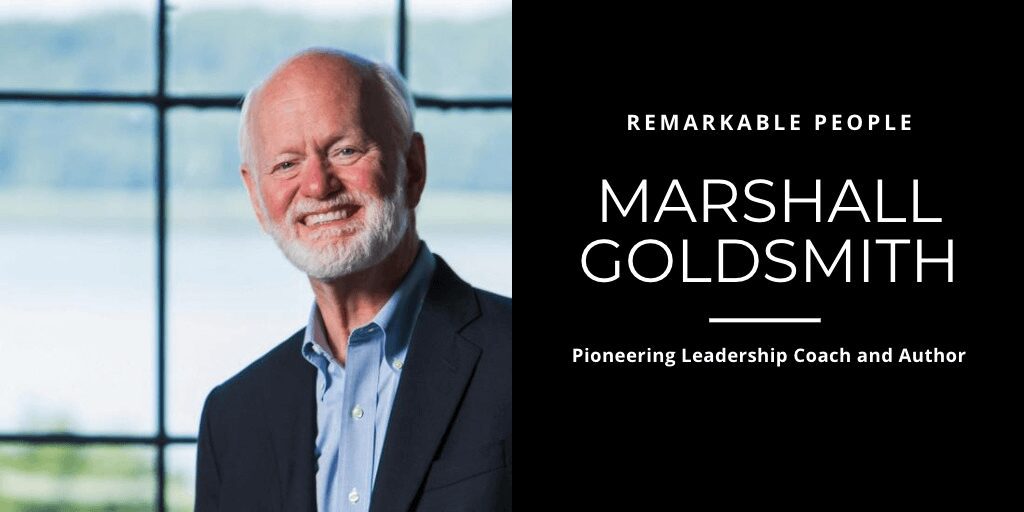
Over the last decade, coaching has become increasingly popular as more people understand the value of having a coach or mentor to simplify their journey toward their goals.
However, if you are a coach looking to scale your business, you may need more than your coaching service to help you achieve your objectives. Often, creating an online course can be the perfect complement to your primary offering.
If you’re wondering if it’s possible to create a repeatable course from such an individualized service, the answer is a resounding yes.
You can offer a combination of personalized lessons and online courses to help your clients achieve more without booking up your time.
Coaching can offer valuable insights to help others grow, and online courses are a great way to expand your reach and capacity.
However, not all topics of expertise may be well-suited for the structure of an online course, particularly those that need a more personalized approach. Online courses are better suited to teaching topics that are more practical and require learners to follow certain steps in the learning curve.
In this article, we explore different types of coaches suited for online course creation to help you better understand if your type of coaching aligns with this lucrative online business model.
Don’t have a thriving coaching business yet? Read this guide for tips on how to get started.
Why Coaches Should Create Online Courses
As a coach or mentor, you can set up a simple business model by adding a payment method to a scheduling platform, or online coaching platform, on which you can set up one-on-one virtual meetings.
But these one-on-one sessions take up a lot of your time. So, growing your business becomes completely dependent on the amount of time you can commit to this.
For this reason many coaches look to create online courses as a way to expand their reach and share their wisdom, while also earning passive income.
If your topic does not require considerable individual interaction, you can create an online course and enjoy the following benefits:
- Create a Leveraged Income Stream: Online courses help you assist more clients to accomplish personal or professional objectives while freeing up your time.
- Serve a Wider Audience: Coaches can match participants from anywhere in the world which is not only convenient but also offers a diverse selection of topics, experiences, or group coaching cohorts from which all members can benefit.
- Offer Additional Value: By creating online courses, coaches can provide valuable online educational content to a broader audience.
- Scale Your Business: Online courses are a scalable business model for coaches.
For the most part, coaching (and online courses) can be split into two categories: at work, and outside work. Keep in mind that some types of coaching may touch areas in both categories, so you’ll notice some overlap.
Whether in the workplace, personal settings, or social environments, numerous types of coaches can create online courses – each specializing in different areas to help individuals achieve personal and professional development.
With that said, here is a rundown of the different types of coaches who have the right skillsets, experience, and knowledge for developing impactful online courses.
1. Life Coaches
Being a life coach benefits people from all walks of life. Life coaching is also one of the best coaching niches ideally suited for online courses. The aspects of it that don’t require high amounts of personal interaction with clients, can easily be replaced with self-study.
As a life coach, your main focus will be on overall life improvement, personal growth, and goal setting. Your work will involve guiding personal development; helping clients set personal goals and make positive changes in their lives.
This type of coaching is ideal for anyone unsure of how to use their strengths to live a healthy, wealthy, and expansive life.
You can create online courses that could be broad or vague, as long as you have a very focused niche and structure. For instance, you might create courses focused on specific demographics, such as men, women, parents, retirees, etc.
Example of a Life Coach: Vanessa Hagerbaumer – Life Coach for Women

Here are some potential online course ideas for a life coach:
- Goal-Setting Course: Help clients establish effective goal-setting techniques for personal or professional growth. Outline steps like identifying values, getting clear on vision, and setting SMART goals.
- Self-Discovery Course: Journey into finding one’s passion and purpose, and improve self-awareness. Include activities like visualizations, journaling prompts, and assessments.
- Habit Building Course: Equip clients with strategies for successfully developing new habits. Cover understanding triggers, creating a habit loop, and staying consistent.
- Self-Confidence Course: Help students build self-esteem and overcome self-doubt and negative self-talk. Include lessons on positive affirmations, identifying strengths, and growth mindset.
The options are vast given a life coach’s breadth of knowledge on personal development and transformation. All you have to do to get started is choose an area of specialty and find the best online course platform to create content.
2. Spiritual Coaches
Spiritual coaches take a different approach from life coaches. Rather than focusing on the tangible world, they rely on inner wisdom to guide their clients in finding ways to become a peace with themselves.
Their primary aim is to foster a balanced state of mind, enabling clients to accomplish personal goals and objectives. This form of coaching considers both internal contemplation and external forces, connecting clients more fully with themselves and their environment.
Spiritual coaches often encourage an appreciation of nature, universal energy, and the essence of the human spirit. They are passionate about growth, purpose, and meaning; and offer relatable struggle-to-success stories.
For these types of coaches, success means helping their clients attain inner peace. As a spiritual coach, you can create online courses to help individuals discover the direction that works best for them. Use your course to nurture, support, and empower clients to grow and develop from within.
Example of a Spiritual Coach: Sahara Rose

Potential online course ideas for a spiritual coach:
- Religious Coaching Courses: As a religious life coach, you can create online courses that focus on helping your clients align their work and personal lives with their religious values.
- Mindfulness Courses: Teach mindfulness and meditation techniques to promote mental well-being and stress reduction.
- Positive Psychology Courses: Integrate principles of positive psychology to help clients foster happiness, resilience, and a positive mindset. You can also provide clients with guidance around topics of spirituality, mindfulness, self-reflection, awareness, and a sense of meaning and purpose.
One of the biggest challenges of creating courses in this niche is that they could seem undefined or far-reaching. To be successful requires concrete structure and activities aligned with your topic of choice.
3. Personal Development Coaches
Personal development coaching often overlaps with life coaching and spiritual coaching. As a personal development coach, there are many online courses you can create to help your clients get on track with their lives.
For instance, you can create a variety of courses aimed at helping individuals enhance various aspects of their lives.
Your course could be tailored to help clients develop their skills and talents, and you can use the online course platform to provide them with tools to create and achieve goals for their entire lives, not just in a single area.
Example of a Personal Development Coach: Brendon Burchard

Potential online course ideas for a personal development coach:
- Mindfulness and Emotional Intelligence Course: You can create a course that helps clients practice techniques like meditation and self-reflection to better understand emotions. Or the course could focus on improved resilience, focus, self-awareness, and regulation of feelings.
- Positive Thinking and Mindset Shift: Help individuals cultivate a positive mindset, reframe negative thoughts, and foster a more optimistic outlook on life.
- Mindful Decision-Making: Guide participants in making mindful decisions aligned with their values and long-term goals.
- Cultivating Gratitude and Happiness: Explore the science of happiness and provide practices to cultivate gratitude and joy in everyday life.
You might even consider creating personal development courses for entrepreneurs if that’s more aligned with your niche. For instance, you can tailor a course specifically for entrepreneurs, covering topics such as resilience, decision-making, and effective leadership.
Alternatively, you might consider helping your clients find ways to transform fear into empowerment by creating a step-by-step process that they can do on their own to remove blocks that might be hindering their personal development.
When creating a course as a personal development coach, you need to consider the specific needs and interests of your target audience, ensuring the content is engaging, actionable, and aligned with your expertise and philosophy.
4. Health and Wellness Coaches
Health and wellness coaching typically works in various settings, including one-on-one coaching sessions, group coaching, corporate wellness programs, or online platforms.
You can use any coaching style, but the goal is to support individuals in achieving optimal health and well-being by fostering positive habits and lifestyle changes. The main focus will be on improving clients’ health and well-being, incorporating aspects like nutrition, fitness, work-life balance, developing good habits, and stress management.
As a health and lifestyle coach, you can use your expertise in fitness, nutrition, and lifestyle to create a course that motivates clients to set and achieve health goals related to healthier living and making healthy lifestyle choices
One of the great things about being a coach in this niche is that it is a broad niche with a lot of possibilities for creating engaging online courses in every area of life, including physical, emotional, spiritual, and mental health. However, the challenge is that it requires staying updated on scientific research.
Example of a health and wellness coach: Eric L. Cox

Potential online course ideas for a health and wellness coach:
- Behavioral Change Support: Assist clients in identifying and overcoming barriers to healthy habits. Utilize behavioral change techniques to help clients develop new, positive habits and break free from unhealthy patterns.
- Nutrition Guidance: Offer guidance on nutrition, meal planning, and mindful eating to promote healthy eating habits. Help clients understand the role of nutrients in overall well-being and address specific dietary concerns or goals.
- Fitness and Exercise Support: Collaborate with clients to create fitness plans that align with their goals, preferences, and fitness levels. Encourage regular physical activity and provide motivation and support for maintaining an active lifestyle.
- Holistic Life Balance: Help individuals create a balanced and fulfilling life by addressing physical, mental, emotional, and spiritual aspects.
If you’re a mental health coach, you might consider creating an online course to help clients develop balance in a way that supports optimum health and growth in their lives.
You can then act as an accountability partner, regularly checking in with clients to monitor progress and provide ongoing support. As they go through your course, you can offer motivation and encouragement to help them stay committed to their wellness journey.
5. Personal Fitness Coaches
Fitness and sports coaches have been offering remote training courses since the day the first exercise video was created.
Fitness coaches specialize in physical fitness, providing guidance on exercise routines, nutrition, and lifestyle changes for peak physical performance.
Similarly, sports coaches focus on motivation, goal-setting, performance optimization, and confidence-building for clients – the main difference being that they guide athletic clients in improving their skills, performance, and mental resilience in various sports.
Modern online courses expand on this tradition and even create more interaction and engagement by offering interactive online courses where learners can interact with the content, communicate with fellow learners, and take quizzes to test their knowledge.
They can also ask questions and give feedback, as well as get access to additional resources and best practices to help them maximize their efforts and avoid the risk of injuring themselves.
Example of a personal fitness coach: Michael Alvarez

Potential online course ideas for a personal fitness coach:
- Exercise Technique: This includes teaching proper form for lifts, moves, stretches, and cardio workouts to prevent injury and maximize results.
- Nutrition Fundamentals: Educate clients on nutrition strategies for fat loss, muscle growth, or athletic performance like macros, calorie intake, and hydration.
- Effective Training Split Strategies: Provide expert guidance on how often to train, and ideal workout splits for different goals whether that is strength-building or body toning.
- Goal Setting: Help set realistic fitness goals related to strength gains, weight loss, and endurance gains using tools to track progress.
- Lifestyle and Behavior Change Tactics: Offer tips on developing self-discipline, consistency, better sleep hygiene, reducing stress, and increasing activity levels for those new to fitness.
Online training is becoming increasingly popular as more and more people understand the importance of health and fitness in the digital age. The right fitness coach educates across all of these areas empowering clients with the knowledge and tools to actualize their fitness goals sustainably.
You can leverage expertise to create engaging online courses on a wide variety of topics. In addition to incorporating workout routines, nutritional guidance, and goal setting to help your clients achieve their fitness objectives, you can also design quizzes around health and fitness to remind learners of their priorities and keep them on track.
6. Relationship Coaches
Relationship coaches are any type of coach that helps individuals and families get through the challenges of relationships, both emotional and practical. There are many types of relationship coaches, including dating coaches, divorce coaches, and parenting coaches.
Some relationship coaches help your clients strengthen romantic relationships and work through daily challenges couples have to navigate to improve communication and create a harmonious environment. Other coaches help clients fix broken relationships while others help them find the perfect partner.
Wherever you fall within this niche, you can add online courses to the products you offer as a relationship coach. The best part is that there are many relationship-coaching-focused topics you can cover, such as family relationships, friendships, people skills, and more.
Example of a Relationship Coach: John Gottman

Potential online course ideas for different types of relationship coaches:
- Dating Coaches: Create an online course that offers advice on building self-confidence, improving interpersonal skills, finding the right match, and overcoming dating challenges.
- Premarital Coaches: Create a course that helps engaged couples to identify strengths and growth areas, ensure alignment on important issues like finances and family, and establish healthy communication patterns.
- Divorce coaches: Help clients change their view on the fallout that usually accompanies divorce, helping them to recognize and focus on the promise in their prospects, as opposed to wallowing in the life they left behind.
- Parenting Coaches: Provide support and guidance to parents in raising children, addressing parenting challenges, and fostering positive family dynamics.
- Intimacy Coaches: Create a course that helps individuals and couples overcome intimacy issues like lack of connection, mismatched sex drives, trust problems, etc. Useful for improving sexual and emotional intimacy.
As you can see, there are many opportunities for relationship coaches to create online courses. Just focus on addressing the main challenges faced by clients, and provide strategies, tactics, and step-by-step processes to help clients get to the desired place.
7. Life Transition Coaches
A life transition coach supports individuals going through major life changes such as divorce, job loss, empty nesting, retirement planning, relocating, career changes, and grief.
While these moments can be exciting, they can also be scary, too. Sometimes people need a little help coping with such big changes in their lives, which makes the transitional coach a perfect choice to help them put things in perspective and make those life changes as smooth and enjoyable as possible.
Some of the big moments that transformational coaching most commonly assists with include having kids, graduating from college, and moving to a new city.
Example of a Life Transition Coach: Linda Roszak Burton

Potential online course ideas for life transition coaches:
- Major Transitions: Create an online course with strategies designed to support clients experiencing big shifts, such as career changes, relationship endings, new commitments, health crises, moving, becoming a parent, retirement, etc.
- Skill-Building: Teach practical skills related to the transition like interview prep, time management as a new parent, and financial planning for retirement.
- Decision Counseling: If clients are struggling with big life decisions or direction, your course can provide structure, tools, and guidance during the decision-making process.
The overall focus is helping people thoughtfully navigate change, build resilience, and craft fulfilling next chapters – whatever their transition may be.
You can act as a soundboard, strategist, supporter, and accountability partner.
Be there to offer emotional support, and provide encouragement and motivation when clients are feeling overwhelmed, anxious, or stuck during major shifts.
They can learn much from their course and get in touch with you when they need help to process emotions, re-evaluate priorities and goals, address fears, master new skills for their situation, and make thoughtful plans or next steps.
8. Recovery Coaches
Recovery coaches mainly work with individuals dealing with addiction to help them find healthy coping mechanisms so they can live free from substances.
Much of this type of coaching involves sessions in the form of a monologue. The patient discusses their life, and the coach occasionally asks for some clarification and offers a suggestion.
But, recovery coaching is all about learning new behaviors, and as a recovery coach, you might create online courses designed to help addicts practice positive mental health and learn techniques for healthy living on their terms.
You can also create courses aimed at helping the families of addicts come to terms with the situation and better understand how they can help their loved ones on their journey to recovery.
As part of your program, you can provide additional resources, such as background reading, quizzes, and other resources on certain subjects to guide them along the journey.
Example of a Recovery Coach: Tommy Rosen

Here are some potential online course ideas for recovery coaches:
- Understanding Addiction: Create a course that explores the biological, psychological, and social factors to help clients gain a comprehensive overview of the biology of addiction, along with emotional, familial, and environmental factors that contribute to substance abuse.
- Common Triggers and Coping Strategies for Preventing Relapse: Identify common internal and external triggers that can lead to relapse and equip clients with healthy coping mechanisms to overcome them.
- Recovery Plans and the SMART Goal Framework: Help recovering addicts transform vague goals like “get sober” into Specific, Measurable, Achievable, Relevant, and Time-based ones to create an actionable recovery plan.
- Understanding Co-Occurring Disorders: Support those with mental health challenges in learning how to identify and respond to mental illnesses that co-occur with addiction like depression, trauma, and eating disorders.
As you can see, there are many directions you can go when creating online courses in this niche. You can even create quiz-style self-evaluations to help your clients recognize whenever they need support. Include branching scenarios in your courses so they can practice how to respond to stressful situations.
Most importantly, you must build a community around your product to provide additional support to recovering clients. You must also become an accountability partner and hold clients accountable to timelines, commitments, and self-care practices that propel them forward before, during, and after the process.
9. Business Coaches
Building a business is challenging work. It takes a very steady mind to manage such high-level decision-making without letting any of the details fall through the cracks.
As a business mentor or coach, your work will center around helping businesses and their employees enhance performance, efficiency, and productivity by providing insight into business management and business development. This is a very profitable niche for coaches with an entrepreneurial mindset.
This type of coaching is similar to consulting and takes an organizational approach to help leaders build strategies for growth.
Unlike coaching for individual growth, or performance coaching, business coaching focuses more on helping clients develop, rethink, and execute game plans at specific times for certain business outcomes.
It often includes team coaching, that is, facilitating the executive’s leadership team throughout the journey. Most of your work will be conducted in one-to-one sessions but you can also create online courses to achieve many of the same objectives.
Example of a Business Coach: Melinda Emerson

Here are some potential online course ideas for business coaches:
- Business Planning and Strategy: How to guide clients to create comprehensive business plans, set visions and goals, do market analysis, and develop executable growth strategies.
- Financial Management: Tools and techniques to help clients better manage finances, cash flow, profitability, projecting future performance, and securing funding/investment.
- Marketing, Sales, and Customer Acquisition: Methods for developing marketing campaigns, identifying target customers, crafting brand messaging, leveraging social media, and sales tactics to attract and retain customers.
- Pitching and Presentation Skills: How to craft investor pitches, sales presentations, and impactful speeches to secure funding, make sales, or speak persuasively.
- Entrepreneurial Mindset: Cultivating creativity, resilience, calculated risk-taking, and innovation to spark entrepreneurial ventures and drive intrapreneurship from within existing companies.
The focus of your online course can be a mix of strategic business knowledge, leadership skills, and concrete operational skills.
You might even focus on small businesses. This niche is somewhat like business coaching, except that its main focus is on unique challenges faced by small businesses. More than being just a cheerleader, you will use your coaching expertise to help small businesses make informed decisions to not only run their business efficiently but also grow in scale with time.
10. Executive Coaches
Good leaders don’t just sprout from nowhere. Businesses that succeed are typically those that prioritize leadership training to help them develop effective managers to help keep the operations running smoothly.
As an executive coach, you can create training courses designed to help individuals grow into their positions.
For example, you might create branching scenarios to help business leaders practice the management of employee relationships. Alternatively, you might focus on guiding leaders through designing and executing successful team-building seminars. Your course might even be on how to effective ways to identify and recruit the right employees.
This type of coaching is ideal for executive-level leaders and business owners, as well as anyone who plays a part in setting the vision and goals for the organization. It focuses on leadership development, communication, decision-making, productivity, team-building, and other executive-level skills for enhanced organizational effectiveness.
Example of an Executive Coach: Marshall Goldsmith

Potential online course ideas for executive coaches:
- Executive Presence and Influencing Skills: Executive coaching courses can help clients develop skills to assess and enhance their executive presence, gravitas, influencing skills, and communication style. You can cover both virtual and in-person presence.
- Designing High Impact Coaching Programs: Teach executives how to design coaching/training programs, including stakeholder analysis, goal setting, customization for the individual client, metrics, and evaluation.
- Leadership Transitions Coaching: Provide frameworks and tools for coaching leaders through promotions, onboarding, mergers and acquisitions, or other major transitions.
- Agile Leadership Coaching: Teach Agile principles and how leaders can carry out their roles with more agility, adaptability, and lean methodologies.
You can choose any topic that helps clients create team synergy, implement new ideas, and come up with creative ways to deal with companywide change.
11. Career Coaches
Career coaching carries some similarities to business coaching but focuses on individuals who are seeking a career overhaul. This can be changing careers, advancing a current career, understanding the job market, or getting help with organizing their resume to nail an important interview.
For the most part, career coaches are passionate about things like productivity and progression – the same topics business coaches focus on.
Career coaching involves assisting individuals to make informed decisions regarding career development, job search strategies, professional skills, and achieving career fulfillment.
As a career coach, you might use a platform like Kajabi Coaching to create online courses to help clients identify specific objectives that align with their main goals and then set milestones toward achieving them. This type of coaching is ideal for high-potential people looking to get to the next stage in their careers.
Example of a Career Coach: Richard N. Bolles

Prospective online course ideas for career coaches:
- Technology and Career Development Coach: Assists individuals in acquiring and developing technical skills for career advancement in the rapidly changing technology landscape.
- Communication Skills Course: Create an online course that teaches how to effectively communicate needs, and improve listening abilities. Cover difficult conversations, boundary setting, and better relationships.
- Self-Discovery and Personal Branding: Guide participants through self-discovery exercises to better understand their strengths, values, and passions. Help them build a personal brand aligned with their authentic selves.
As a career or success mentor, you can create online courses on virtually any topic that has to do with career growth, entrepreneurship, and leadership. Market your course by driving home the significance of professional development in today’s competitive landscape and showcase some real-world success stories as a way of leveraging social proof.
12. Financial Coaches
Even in this super competitive niche, there are ways you can supplement your one-on-one coaching with online courses.
Money struggles are a constant in most people’s lives, but when it comes to getting themselves to more stable financial ground, they don’t know where to start. This is where financial coaches come in.
As a coach, you can help these individuals by creating online courses that offer practical solutions to their problems.
Even those who have managed to create a comfortable financial situation for themselves still have some interest in personal finance.
You might create online courses with specific topics to help people with things such as money management, budgeting, debt reduction, investment planning, retirement planning, wealth building, and overall financial literacy.
Whatever their goals, there’s an online course that can help to keep your learners up to date on relevant financial matters.
Example of a Financial Coach: Dave Ramsey

Here are some good online course ideas for financial coaches:
- Budgeting and Money Management Fundamentals: Help clients develop personalized budgets, manage spending and debt, and achieve financial goals. Cover the latest apps and tools they can use to simplify and automate processes.
- Investing and Retirement Planning Strategies: Provide knowledge about developing long-term investing plans tailored to each client, planning for retirement, and understanding market risks.
- Credit and Lending Fundamentals: Give an overview of credit scores, reports, mortgage lending, student loans, handling credit card debt, and improving creditworthiness.
- Tax Planning and Filing Best Practices: Explain income tax codes and filing process, tax reduction strategies, estate planning basics, working with CPAs, and managing audits.
- Strategies for Student Loans and College Savings: Provide specifics around managing student loan debt, repayment programs, loan forgiveness policies, college savings plans, and paying for education.
As a financial coach, you don’t have to focus just on individuals. You might also create online courses for financial coaching business development where you cover best practices in launching and marketing a financial coaching business including networking, social media, value propositions, and first client meetings.
The Rundown
As this guide has shown, the industry comprises many different types of coaches with different coaching styles, the majority of whom can leverage their knowledge and expertise to create online courses to boost scalability and increase revenue for their online coaching business.
Are you ready to leverage your coaching expertise to create life-changing courses for your clients? Let us know in the comments below!
Table of Contents



